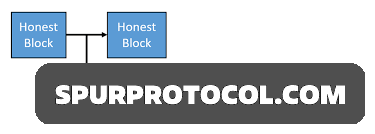Selfish Mining Explained
Selfish mining is a sneaky way that some people cheat in blockchain networks or distributed digital ledger systems.
Go Back

🕒 1:12 PM
📅 May 22, 2025
✍️ By Ecojames
What Is Selfish Mining?
- Selfish mining is a deceitful cryptocurrency mining strategy in which one miner or a group solves a hash, opens a new block, and withholds it from the public blockchain.
- This action creates a fork, which is then mined to get ahead of the public blockchain.
How Selfish Mining Works
- A selfish miner (or pool) finds a block — let’s say block #1001.
- They do not broadcast it to the network.
- Honest miners keep working on block #1000, unaware that a new block already exists.
- Meanwhile, the selfish pool finds block #1002 — and keeps that one private, too.
- Once their private chain is longer than the public one, they release it.
- The blockchain protocol chooses the longest valid chain — so their version wins.
- Honest miners lose out on rewards, and the selfish pool collects everything.
How is Selfish Mining a threat to crypto miners
1. Security Risk
- The blockchain’s consensus mechanism can be manipulated by a miner or group of miners that possess more than 50% of the network’s processing power.
- It can result in the issuance of erroneous blocks that impair the network’s operation.
- Double-spending attacks, in which a user spends the same bitcoin twice, may result from this manipulation.
- Users may suffer large financial losses as a result, and the blockchain’s reputation may be destroyed.
- The network’s security is weakened, leaving it open to malicious activity and hacker assaults.
2. Decentralization
- The blockchain network’s decentralization is impacted by selfish mining as well.
- A single entity can influence a network’s decision-making process if it possesses more than 50% of its processing power.
- Selfish mining hinders small miners’ ability to engage with the network, which increases power centralization.
3. Network Congestion
- An excessive number of transactions on the network might cause congestion, which is another issue that selfish mining can cause.
- A poor user experience may result from this congestion, which can cause delays in transaction processing and higher transaction fees.
4. Reputational Damage
- The blockchain’s reputation may be harmed as a result of the selfish mining industry’s effects.
- Users may decide to move to other options if they lose faith in the security and dependability of the network.
5. Loss of Transaction Fees
- In the blockchain network, selfish mining may result in a loss of transaction fees.
- It is due to the possibility that selfish miners will obstruct the finding of fresh blocks, which could create a delay in transaction confirmation. It can result in a backlog of pending transactions.
6. Extended Confirmation Times
- Transactions in the blockchain network may take longer to confirm as a result of selfish mining.
- It is due to the possibility that selfish miners will obstruct the finding of fresh blocks, which could create a delay in transaction confirmation.

